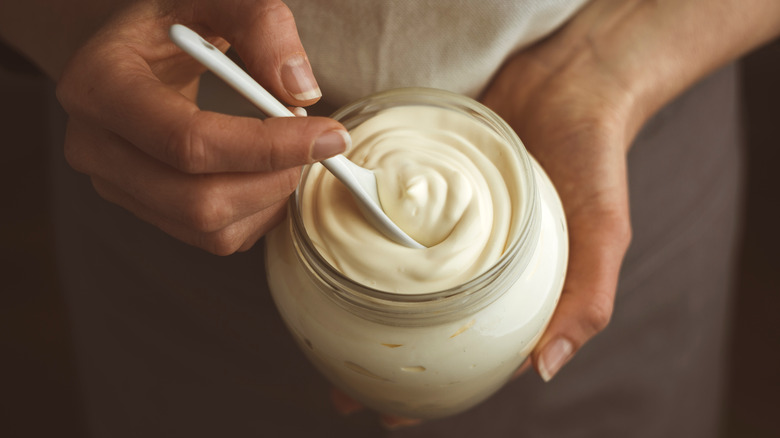What Happens If You Microwave Mayonnaise: Surprising Facts?
Written By James Morgan
Microwaving mayonnaise might sound curious, especially if you're a barbecue enthusiast who loves experimenting with flavors. Have you ever wondered what happens if you microwave mayonnaise? This comprehensive article delves into the science and results of heating this commonly used condiment, and it may surprise you.
While you typically use mayonnaise cold as a spread or a dressing, understanding the implications of microwaving it can enhance your cooking experience, especially when grilling outdoors. Join me as we explore the possible outcomes, safety concerns, and practical advice surrounding this culinary experiment!

Understanding Mayonnaise: What Is It?
First, lets unpack what mayonnaise is. At its core, mayonnaise is an emulsion created from egg yolks, oil, and an acid such as vinegar or lemon juice. This coupling of ingredients gives mayonnaise its creamy texture and rich flavor, making it a popular choice in various dishes like sandwiches and salads. However, the question remainshow do these components react when exposed to heat?

The Science of Heating Mayonnaise
When we think of heating food, we consider temperature, time, and the overall changes that occur when we apply heat. Lets look into what happens when you microwave mayonnaise and why it may not be the best idea.
Mayonnaise Components and Heat
Mayonnaise consists of a high fat content due to the oil and egg yolks. When you microwave mayonnaise, two main reactions occur:
- Separation: The heat can cause the emulsion to break, leading to a watery consistency with the oil separating from the egg yolk solids.
- Temperature Increase: As the consistency of mayonnaise changes, the temperature rises, which can lead to unsafe cooking conditions if not monitored closely.
Is It Safe to Microwave Mayonnaise?
From a safety perspective, warming up mayonnaise in a microwave can lead to foodborne illness risks, especially if it has been stored improperly. Commercial mayonnaise has preservatives, but homemade versions lack those additives, making them more susceptible to spoilage when exposed to heat.
In summary, microwaving mayonnaise can create a less-than-desirable texture and may pose health risks.

Alternative Uses for Mayonnaise in Cooking
Rather than add mayonnaise to your grill essentials directly, consider some exciting ways to incorporate it in your cooking endeavors:
- Marinades: Mix mayonnaise with your choice of spices for a unique outdoor cooking marinade.
- Flavor Booster: Use mayonnaise with seasoning to add flavor to grilled vegetables.
- Basting Sauce: Incorporate mayonnaise into a basting sauce for grilled meats, providing moisture and flavor.

Interesting Facts about Mayonnaise
Here are a few fun things to keep in mind:
- Mayonnaise first appeared in France in the 18th century and has since become a staple in various cuisines.
- The word 'mayonnaise' is believed to come from the town of Mahn, Spain.
- Many people have debated mayonnaises status in culinary circlessome love it, while others criticize it.
FAQ
Can you heat mayonnaise safely without a microwave?
Yes, if you need to warm mayonnaise for a recipe, its better to use a double boiler so you can control the temperature and avoid breaking the emulsion.
What is the safest way to store mayonnaise?
Store mayonnaise in the refrigerator for optimal freshness. Always check expiration dates and ensure it stays sealed after use.
Is there any substitute for mayonnaise?
If you do not have mayonnaise on hand, alternatives include Greek yogurt or mashed avocado, both of which serve as good emulsifying agents in recipes.
Final Thoughts
Heating mayonnaise in the microwave indeed raises some questions and potential hazards. Emulsions can face trouble when the heat is applied, and the remarkable aspects of cooking may lead to unexpected results. You can find endless ways to properly utilize mayonnaise in barbecue and grilling, but warming it isnt one of them.
For more information about making carnivore mayonnaise or how to make mayonnaise without lemon juice, consider checking the articles linked for helpful tips and tricks!
Always remember: Its the flavor that counts in barbecuing, so dont compromise the integrity of your ingredients!
As an Amazon Associate, I earn from qualifying purchases.



